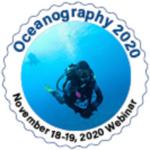
Misbah Younis
Fatima Jinnah Women University, Pakistan
Title: How plastic pollution causing climate change:A case study of first marine protected area of Pakistan(Astola Island)
Biography
Biography: Misbah Younis
Abstract
Astola Island is the first marine protected area of Pakistan acknowledged on June 15, 2017. This is also known as Jazeera Haft Taller (Island of seven hills). It covers an area of 6.7km2 in width, 240 feet high above sea level and buffer zone of 401.47 km2. It is a rich biodiversity hotspot, inhabiting endangered species like Green turtle, Hawksbill turtle, and Arabian Humpback whale. It is the home of a variety of birds e.g. Lars hemprichii, Artic Skua, Sooty gull and almatian pelican. Around Kawaka hazard shrine six plant species of Props juliflora are concentrated due to anthropogenic activities. A saw-scaled Russell’s viper is endemic to Island. Marine ecology of Astola Island is affected by plastic pollution resulting in coral destruction, ocean acidification, global warming,climate change, fishing nets blockage, water pollution, illegal fishing and coastal erosion. Astola is uninhabited offshore largest island due to high tides, roughness of the sea and fishing-off Season Island remains unpopulated mostly from June to August.Due to sunlight plastic present in Astola Island release powerful greenhouse gases and converted into microplastics. Environmental micro plastics are a complex cocktail of toxicants which transfer the plastic-associated chemicals to humans.Ingestion of microplastic by aquatic organisms released plastic-associated chemicals into animal’s gut and subsequently transfers to aquatic food web.Plastic pollution is not just an oceans issue but it’s a climate issue.

